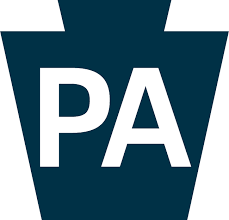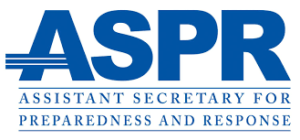COVID-19 Update: June 2, 2020
Coronavirus update for Monday, June 2 as of 2:45 p.m.
The following is the latest information from the state and federal governments as of 3:00 p.m. on Tuesday, June 2.
Pennsylvania Update
Department of Health
 The Department of Health has updated its guidance on risk assessment and work restrictions for health care personnel that it originally issued in early March. This update simplifies the determination of risk exposures warranting work restriction.
The Department of Health has updated its guidance on risk assessment and work restrictions for health care personnel that it originally issued in early March. This update simplifies the determination of risk exposures warranting work restriction.
Department of Health – by the numbers
- Yesterday’s new case count was higher than the previous day and the death count soared.
- More than 18,300 long-term-care residents and workers have contracted COVID-19.
- As have more than 5500 health care workers.
- 1302 Pennsylvanians are currently hospitalized for COVID-19, with 270 of them on ventilators.
- 45 percent of state hospitals’ acute-care beds, 38 percent of their ICU beds, and 24 percent of their pediatric ICU beds are currently unoccupied, as are 53 percent of their isolation rooms.
Federal Update
Centers for Medicare & Medicaid Services
 The Quality, Safety & Oversight Group of CMS’s Center for Clinical Standards and Quality has written to state Medicaid agencies about COVID-19 survey activities, CARES Act funding, and enhanced enforcement for infection control deficiencies and quality improvement activities in nursing homes. The memo calls on states to do a more complete job of inspecting nursing homes for their infection control efforts, proposes penalties for states that fail to do so, and explains that CMS will allocate CARES Act funding based on performance-based metrics. See CMS’s detailed news release about this new policy.
The Quality, Safety & Oversight Group of CMS’s Center for Clinical Standards and Quality has written to state Medicaid agencies about COVID-19 survey activities, CARES Act funding, and enhanced enforcement for infection control deficiencies and quality improvement activities in nursing homes. The memo calls on states to do a more complete job of inspecting nursing homes for their infection control efforts, proposes penalties for states that fail to do so, and explains that CMS will allocate CARES Act funding based on performance-based metrics. See CMS’s detailed news release about this new policy.- CMS has updated its toolkit to help states mitigate the prevalence of COVID-19 in nursing homes.
Food and Drug Administration
- On Wednesday, June 3, the FDA will host a virtual town hall for clinical laboratories and commercial manufacturers that are developing or have developed diagnostic tests for COVID-19. The purpose of this town hall is to help answer technical questions about the development and validation of COVID-19 tests. For more information about the town hall, go here.
- The FDA has issued emergency use authorization for a specific commercial device for use in hospitals to provide temporary right ventricular support for up to 14 days for critical care patients suffering from acute right heart failure or decompensation caused by complications related to COVID-19.
The Joint Commission
The Joint Commission has announced that it will resume regular surveys and reviews in this month, with its methodology modified in some respects to reflect the need to practice social distancing.
Resources to Consult
Pennsylvania Department of Human Services
Pennsylvania Department of Health
Centers for Disease Control and Prevention
(To receive this daily update directly, sign up for our mailing list at info@pasafetynet.org.)
 Pennsylvania Update
Pennsylvania Update HHS has added to and modified its
HHS has added to and modified its  The FDA is making its previously developed FDA MyStudies app available to investigators as a free platform to securely obtain patients’ informed consent for eligible clinical trials when face-to-face contact is not possible or practical due to COVID-19 control measures. FDA MyStudies is now referred to as
The FDA is making its previously developed FDA MyStudies app available to investigators as a free platform to securely obtain patients’ informed consent for eligible clinical trials when face-to-face contact is not possible or practical due to COVID-19 control measures. FDA MyStudies is now referred to as  The Wolf administration announced that 16 more counties will move to the green phase next Friday, June 5. This includes Allegheny County.
The Wolf administration announced that 16 more counties will move to the green phase next Friday, June 5. This includes Allegheny County. Today the Senate passed the interim state general fund budget bill,
Today the Senate passed the interim state general fund budget bill,  The Department of State has automatically
The Department of State has automatically  The General Assembly is working on a five-month stop-gap budget bill to fund the state’s government through November. This proposal,
The General Assembly is working on a five-month stop-gap budget bill to fund the state’s government through November. This proposal,  Last Friday
Last Friday  DHS’s Office of Children, Youth and Families has issued
DHS’s Office of Children, Youth and Families has issued  The CDC has
The CDC has  ASPR TRACIE, sponsored by HHS’s Office of the Assistant Secretary for Preparedness and Response (ASPR) to provide Technical Resources, Assistance Center, and Information Exchange (TRACIE) services, will hold a
ASPR TRACIE, sponsored by HHS’s Office of the Assistant Secretary for Preparedness and Response (ASPR) to provide Technical Resources, Assistance Center, and Information Exchange (TRACIE) services, will hold a  The NIH has
The NIH has